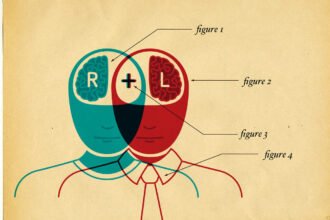Traditional relationships, roles and leadership models are being challenged every day in our post industrial, social web enabled, information driven, people centric business world. Old approaches to managing employees, with their roots in the industrial society are not adequate for hyper-connected, socially aware employees. We need a new paradigm for getting things done and for empowering a new breed of employee that does not function well in a hierarchal, top down, highly controlled environment.
So what does the social employee need to be successful? Here’s a list of some things I think need to be considered in building a new and more productive work model:
- Social employees look for coaches and mentors not “bosses”
- Empowerment to take on business problems without micromanaging but within established guidelines.
- Social web policies and training.
- Freedom to choose hardware like mobile devices, laptops, etc. that fits their individual work style.
- Continuous access to the social web.
- The freedom and ability to form ad hoc workgroups as needed to address business issues and problems.
- People centric enterprise systems that are …
Traditional relationships, roles and leadership models are being challenged every day in our post industrial, social web enabled, information driven, people centric business world. Old approaches to managing employees, with their roots in the industrial society are not adequate for hyper-connected, socially aware employees. We need a new paradigm for getting things done and for empowering a new breed of employee that does not function well in a hierarchal, top down, highly controlled environment.
So what does the social employee need to be successful? Here’s a list of some things I think need to be considered in building a new and more productive work model:
- Social employees look for coaches and mentors not “bosses”
- Empowerment to take on business problems without micromanaging but within established guidelines.
- Social web policies and training.
- Freedom to choose hardware like mobile devices, laptops, etc. that fits their individual work style.
- Continuous access to the social web.
- The freedom and ability to form ad hoc workgroups as needed to address business issues and problems.
- People centric enterprise systems that are individually configurable
- Flexible work locations and schedules when practical
- Open and transparent executives
- Multi-point communication
- Co-branding – providing a place that nurtures strong personal brands that are combined with a strong corporate brand to gain extra impact on the marketplace
- Inclusive decision making culture
- Community
- Ethical and responsible as a world citizen
- Manage to successful outcomes not methods
- Shared control
- Clear business objectives supported by a flexible strategy
What the social employee brings to the business:
- Distributed micro-problem solving. Every employee can solve a small problem everyday. Distributed problem solving eliminates most large business issues before they get “big”.
- Creativity
- Strong work ethic that can self manage to personal results and high levels of productivity
- Responsibility and accountability
- Strong personal brand
- Participates and is engaged with the business
- Ethical
- Effectively represents the corporate brand
This is a start anyway. This new social business model can, I believe, create a work environment that values the individual and increases employee productivity significantly with the correct balance of individual to corporate control. Striking that balance will no doubt take some experimentation and vary by industry and role but is critical in the emerging social business culture. It is not sufficient to only address the social customer in this new model, the new interaction models span customers, employees, suppliers and partners. You can’t, IMHO expect to change corporate culture around customer engagement if you can’t first create an environment for the social employee.






